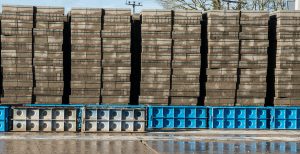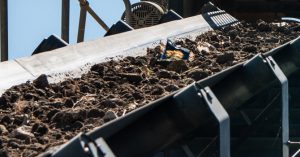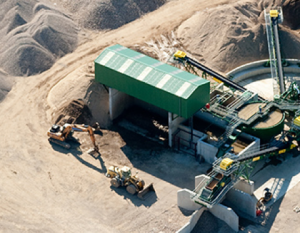The construction industry is one of the biggest users of natural resources and contributors to pollution, globally. It is an unenviable statistic the construction industry needs to reverse to help address the global climate emergency.
The need for change has never been greater. The challenge is to continue to meet the demands for housing and infrastructure, while causing minimum impact on the environment. By adopting sustainable construction practices we can help develop a new world and better lives for future generations.
There are plenty of ways to achieve sustainability in construction, by using renewable and recyclable resources and materials, reducing waste and energy consumption, and protecting the environment on site. Historically cost has been perceived to be a barrier to some contractors. However, sustainable construction products are competitively priced. Plus, people operating green buildings save money in the long term thanks to reduced operating costs.
In its publication of the Clean Growth Strategy last year the Government outlined a commitment to reducing the UK’s carbon emissions by 80% within 30 years. While the construction industry is making positive progress in improving sustainability there is a long way to go. Here are five key areas that can help make construction projects more sustainable.
Sustainable building materials
There are multiple sustainable construction products available that reduce carbon footprint, minimise waste and impact on the natural environment.
One clear way to achieve a significant reduction in carbon dioxide production is to use sustainable concrete products. Concrete is synthetic material and one of the most environmentally unfriendly in the construction chain. Sustainable ready-mix concrete and concrete blocks are two alternatives which reduce carbon dioxide production. Our concrete blocks, for example, contain a minimum 75% recycled aggregates and are environmentally engineered to meet UK and European technical standards.
Using recycled aggregate and sand are other simple and effective solutions to reduce your impact on the climate emergency. They are produced by recycling construction and demolition waste and turning it into reusable products, via a wet washing process. This reduces the pressure on landfill and the environment for natural resources.
Wood is also a great product to use in construction projects, as it does not require a lot of energy to become a usable building material. Well managed sustainable forests can provide renewable materials and a biodiverse environment for wildlife.

Sustainable waste disposal
The construction industry produces a huge amount of waste. It has been reported that as much as a quarter of materials used in construction goes to waste. Plus, around one third of all UK landfill waste is from construction.
There are some simple steps that can be followed to reduce waste on site. Firstly, before sending unused materials to landfill it is worth checking whether they can be used in another project locally. Secondly, all materials should be recycled, where possible. By placing different skips and bins on site waste can be separated at source to improve recycling rates.
It is amazing what can be recycled and reused. Recycle everything you can. Plywood can be converted into mulch or biomass fuel. Metal can be smelted into new products. Masonry, glass, plastic, shingles, gravel, and concrete are also among the construction materials that can be recycled.
Planning authorities are beginning to stipulate a high percentage of all construction waste is recycled and treated within a build’s locality as part of planning consent. This is a positive step forward and if embraced more broadly across the UK will make a big difference to reducing the environmental impact of construction.
At the Sheehan Group we recycle construction and demolition waste, that would otherwise be sent to landfill. This is done via our CDE water treatment plant which turns waste into reusable products. This not only saves waste, but it also creates new sustainable products. Sending waste to landfill is a waste.

Renewable energy
Using energy efficient solutions can make a positive difference to reducing carbon emissions. Products available include using an on-site generator to avoid wasting fuel, plus energy efficient tools and machinery. Using a transportation management system can help reduce air pollution, by controlling speed limits and mapping out the best routes. The quality of biodiesel and electric vehicles are also improving year on year.
Using renewable energy in buildings, from new builds to converting your own premises, will also reduce CO2 emissions. This can include solar panels, biomass boilers, smart appliances and thermostats that help reduce a building’s energy consumption.

Circular Driven Economy
An effective way to make a significant contribution to reducing the construction industry’s carbon footprint is to embrace the Circular Driven Economy. It is a concept in which materials are produced to be constantly recycled or reused. This process reduces the industry’s demand on natural resources and importation of materials. It reduces the pressure on landfill and transportation and the associated carbon footprint.
By embracing the Circular Driven Economy, the construction industry can become more self-sufficient and make strong inroads towards a carbon-neutral future.
Sustainability partnerships
Construction projects often involve multiple suppliers and contractors, which can make minimising site emissions more challenging.
By working with suppliers who prioritise sustainable practices you can ensure your site is maintained in a sustainable way. You can ask potential contractors for their environmental policy and make including sustainable practices part of the brief. Overall, there are numerous benefits to adopting greater sustainable practices in construction, including environmental, financial, and social.
Together we can build a better tomorrow, today.
If you would like to have a chat about how your construction business or project can become more sustainable and help the tackle climate emergency please contact us here.